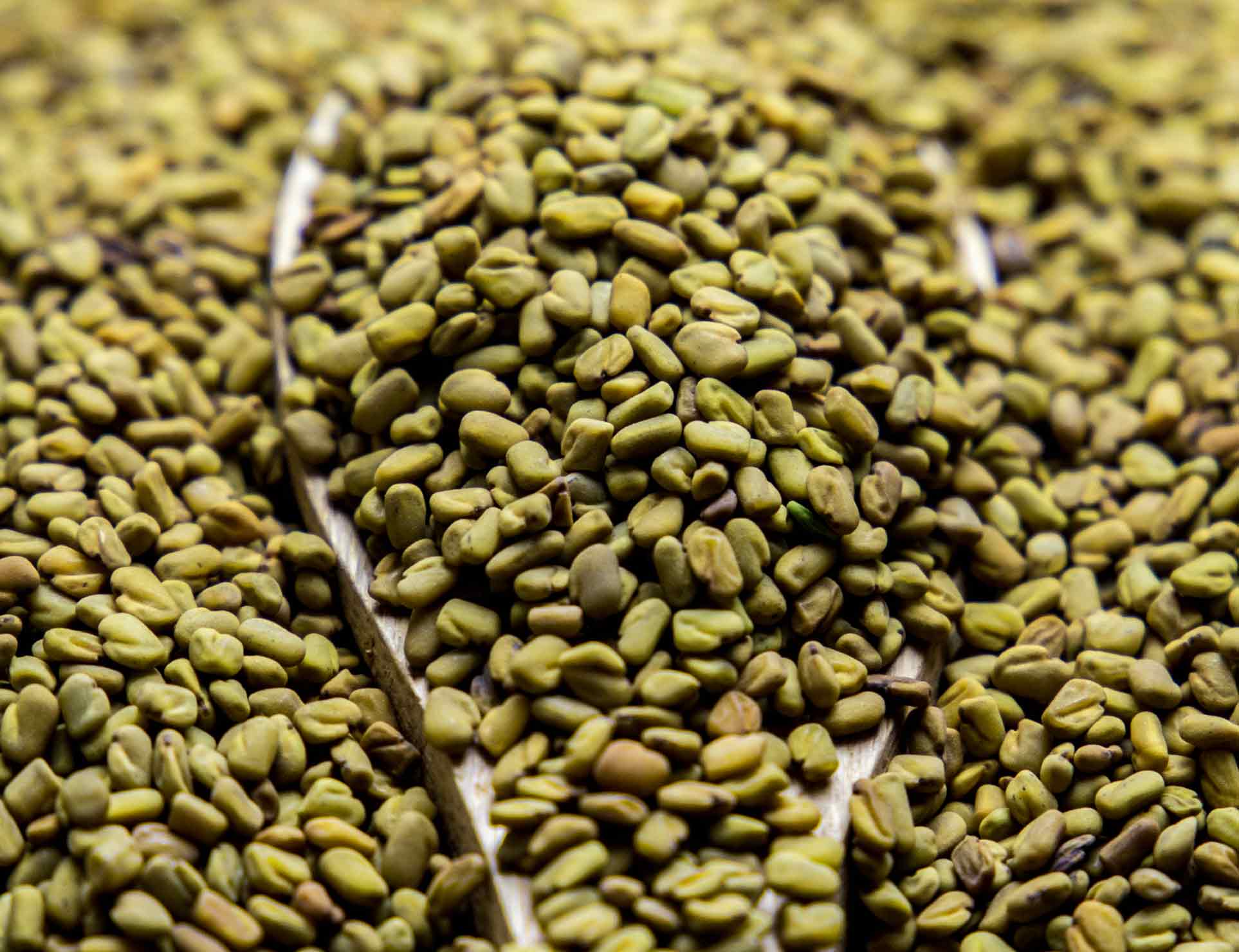Name: Fenugreek seeds
Botanical name: Trigonella foenum-graecum
Family: Fabaceae
What is Fenugreek?
Fenugreek is one of the annual plants that cultivated widely all over the world as a semi-arid crop. It has a hollow stalk, with small branches each with three long serrated leaves at the end. Fenugreek is a very common component in dishes of South Asia.
Fenugreek seeds have been used in the ancient ages. Scientists have discovered charred fenugreek from Tell Halal in Iraq (its carbon was dated to 4000BC) and on Lachish of the Bronze Age levels. They also discovered fenugreek desiccated seeds in the tomb of king Tutankhamun.
What are the uses of fenugreek?
Each part of the fenugreek plant has many useful uses. We can use its leaves as a herb and vegetable whether dried, fresh or sprouts. Its seeds may also used as spice. The distinctive smell of the fenugreek plant is due to the chemical of Sotolon. Fenugreek seeds are used commonly in the dishes of Indian subcontinent. They used it as powder in the preparation of pickles, vegetable dishes, and spice mixes such as panch phoron and sambar powder.
The bulk fenugreek seed also are used in the Egyptian kitchens. In Upper Egypt, they add fenugreek seed powder to the pita bread to make aish merahrah.
What is the nutritional value of the seeds fenugreek?
Many studies discovered that one tablespoon of fenugreek seeds contain the following:
35.5 Of calories
6.4 grams of carbohydrates
2.5 grams of protein
0.7 gram of fat
2.7 grams of fiber
3.7 mg of iron (20% DV)
0.1 mg of manganese (7% DV)
0.1 mg of copper (6% DV)
21 mg of magnesium (5 % DV)
32.6 mg of phosphorus (3% DV)
0.1 mg of vitamin B6 (3 % DV)
What are the benefits of Fenugreek?
Fenugreek seeds can be used as a natural remedy to help in solving the digestive problems and improving cholesterol levels. It helps to improve digestive problems, such as upset stomach, constipation, and inflammation of the stomach. It is used also for the treatment of digestion and relieving constipation. And for its anti-inflammatory effects fenugreek seeds are used for the treatment of ulcerative colitis.
Fenugreek seeds help to reduce inflammation inside the body as such as: ulcers of mouth, boils, bronchitis, infection of the tissues beneath the surface of the skin, tuberculosis, kidney ailments, cancer, and chronic coughs.
Fenugreek seeds may work as a treatment for male problems. Such as hernias, erectile dysfunction, and baldness. Because it has a great effect to increase for sexual desire in men testosterone levels.
Fenugreek seeds help to increase milk flow in breastfeeding. It works as the substance of galactagogue which has the ability to increase milk production in as little as 24 hours.
Also Fenugreek seeds may help to reduce the external inflammation of the body. We can use it as a poultice by wrapping it in cloth, warmed and applied directly to the skin
Ancient Egyptians had used Fenugreek seeds in many useful ways, as follows:
1. To produce bread. They mixed fenugreek flour with corn to produce bread.
2. To make bandages.
3. To remove the wrinkles of the skin.
4. To increase breast milk. The most recent analysis of the fenugreek seeds proved that it contains strong galactogenous oil, and the ancient Egyptians knew that, so they entered it in making their bread.
5. They used the drink of boiled fenugreek seed as a laxative for the abdomen, an aperitif, and for removing aging wrinkles.
6. To expel the spirits.
7. To treat the patient’s topical breast.
8. To treat Psychological diseases.
9. For abortion.
10. To treat the appendicitis in mouth.
11. For abdominal diarrhea.
12. To expel the aging effects.
13. For the treatment of epilepsy.
More related articles:


